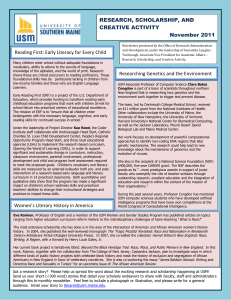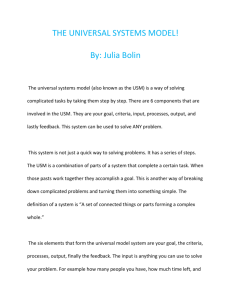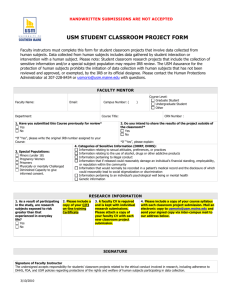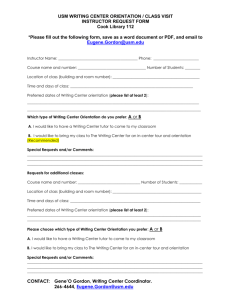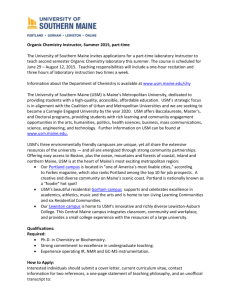Biology 105K, Biological Principles I
advertisement
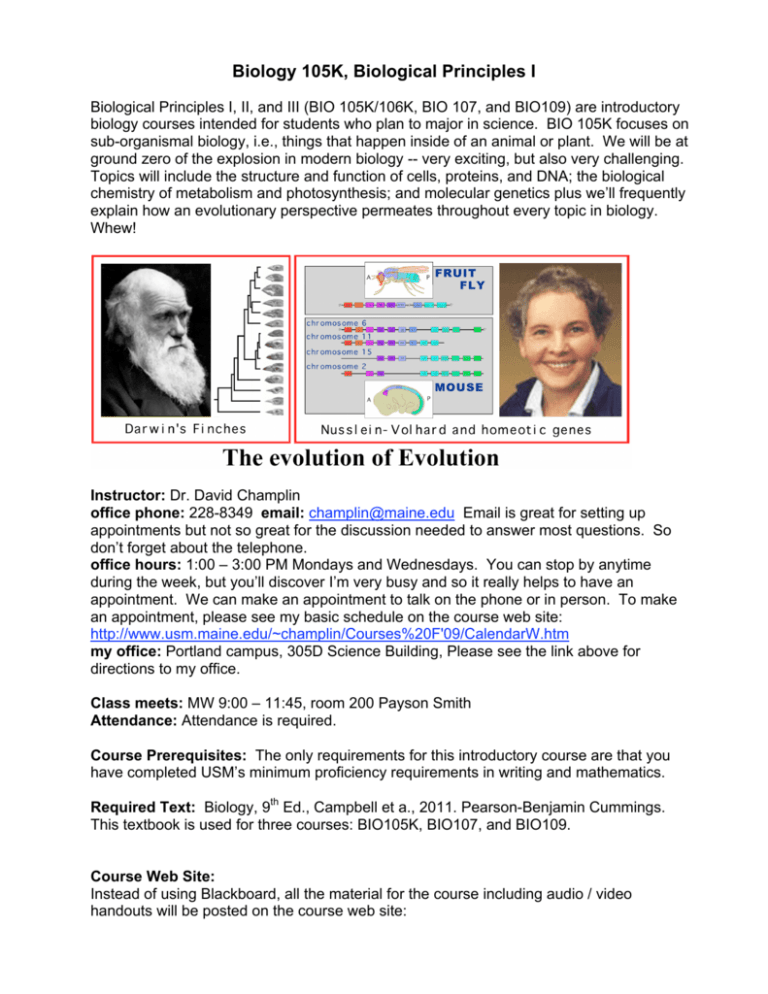
Biology 105K, Biological Principles I Biological Principles I, II, and III (BIO 105K/106K, BIO 107, and BIO109) are introductory biology courses intended for students who plan to major in science. BIO 105K focuses on sub-organismal biology, i.e., things that happen inside of an animal or plant. We will be at ground zero of the explosion in modern biology -- very exciting, but also very challenging. Topics will include the structure and function of cells, proteins, and DNA; the biological chemistry of metabolism and photosynthesis; and molecular genetics plus we’ll frequently explain how an evolutionary perspective permeates throughout every topic in biology. Whew! Instructor: Dr. David Champlin office phone: 228-8349 email: champlin@maine.edu Email is great for setting up appointments but not so great for the discussion needed to answer most questions. So don’t forget about the telephone. office hours: 1:00 – 3:00 PM Mondays and Wednesdays. You can stop by anytime during the week, but you’ll discover I’m very busy and so it really helps to have an appointment. We can make an appointment to talk on the phone or in person. To make an appointment, please see my basic schedule on the course web site: http://www.usm.maine.edu/~champlin/Courses%20F'09/CalendarW.htm my office: Portland campus, 305D Science Building, Please see the link above for directions to my office. Class meets: MW 9:00 – 11:45, room 200 Payson Smith Attendance: Attendance is required. Course Prerequisites: The only requirements for this introductory course are that you have completed USM’s minimum proficiency requirements in writing and mathematics. Required Text: Biology, 9th Ed., Campbell et a., 2011. Pearson-Benjamin Cummings. This textbook is used for three courses: BIO105K, BIO107, and BIO109. Course Web Site: Instead of using Blackboard, all the material for the course including audio / video handouts will be posted on the course web site: http://www.usm.maine.edu/~champlin/courseW.htm Tutoring: You can receive free tutoring for this course at the USM Learning Commons. You can also get free tutoring services in Math, Writing, English as a Second Language (ESL), and Technology Support. Students can schedule a face-to-face or online tutoring appointment by visiting http://usm.askonline.net/ (PLEASE NOTE: students visiting this site for the first time will need to activate their AskOnline account, which will only take a few moments.) In addition to self-scheduling through the AskOnline website, appointments for Portland and Gorham can also be scheduled by calling 7804228, or by visiting The Learning Commons at University Libraries (http://www.usm.maine.edu/learningcommons). Basis For Final Grade: 20% midterm on June 4th 20% final exam on June 25th 20% lecture notes 40% class involvement You’ll get a letter grade for each of the above. Take the letter grade and multiply it by the fraction of the total points the letter grade was worth and then add up all results to get your final grade. USM grading: A=4.00, A-=3.67, B+=3.33, B=3.00, B-=2.67, C+=2.33, C=2.00, C-=1.67, D+=1.33, D=1.00, D-=0.67, F=0.00 Support for Students with Disabilities: USM has an excellent resource you should know about. If you need course adaptations or accommodations because of a disability, please contact the OSSD Office: Room 242 Luther Bonney Hall, 780-4706 Voice Phone, email: oassd@usm.maine.edu, web site: www.usm.maine.edu/oassd EXAM 1 will be on June 4th during the second half of class FINAL EXAM will be on June 25th during the second half of class. Notes on Lectures plus three questions you have about each lecture are due at the start of class on the following dates: 5/12 5/13 Lectures 2 and 3 5/19 Lectures 4 and 5 5/21 Lectures 6 and 7 5/26 no class 5/28 Lectures 8, 9, 10, and 11 6/2 Lectures 12 and 13 6/4 Lecture 14 EXAM 1 6/9 Lectures 15 and 16 6/11 Lectures 17 and 18 6/16 Lectures 19 and 20 6/18 Lectures 21 and 22 6/23 Lectures 23 and 24 6/25 Lectures 25 and 26 FINAL EXAM We will cover Chapters 1 – 18 and parts of Chapter 20 in class. The order we will cover the chapters will be: 1 overview 2 atoms and small molecules 3 water 7 phospholipids and cell membranes 4 more about carbon molecules 5 large molecules, especially proteins. Aquaporin example 6 cells 8 metabolism 9 cellular respiration 10 photosyntheis 11 cell communication 12 cell cycle 17 protein translation 18 regulation of gene expression 13 meiosis 14 genetics 15 genetics 16 DNA replication parts of 20 biotechnology
